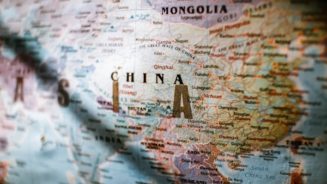It was inevitable after the handover of Hong Kong on 1 July 1997 that there would be friction between the local population, which had experienced more than 100 years of British rule, and the Chinese government.
In a bid to head off any immediate issues, China set up a ‘one country, two systems’ arrangement, which granted Hong Kong the right to retain its way of life for 50 years.
This includes its own laws, courts and other freedoms not available in China.
What is not clear, however, it what will happen from 1 July 2047 when that agreement ends.
Rising tensions
National Day protests occur every year on the anniversary of handover and have long been attracting greater numbers.
As have demonstrations on 1 October, the anniversary of the foundation of the People’s Republic of China.
But they are growing in size, with 2003 seeing around half a million people take to the street to oppose Basic Law Article 23, an anti-subversion amendment that would limit freedom of speech, among other things.
The world-famous ‘umbrella movement’ took place between September and December 2014.
Photos showed the streets teeming with protestors; who lambasted the Chinese government for reneging on an agreement to grant open elections by 2017.
Currently, the special administrative region’s (SAR) chief executive is chosen by a nominating committee made up of 1,200, mostly pro-Beijing, individuals.
Just half of the 70 legislative council seats in Hong Kong are elected by the people.
Escalating violence
The latest round of demonstrations have been ongoing since March 2019.
They centre on the introduction of a highly controversial extradition bill that would allow the transfer of individuals to China.
Hong Kong chief executive Carrie Lam declared the bill dead on 9 July.
But that seems to have done little to calm the unrest, with recent reports showing escalating violence.
Bloom off the rose?
It all begs the question: Are the protests making some people question whether or not they should keep their money in Hong Kong?
According to Bloomberg, nervous Hong Kong millionaires are moving their cash to Singapore.
A major Asian wealth manager, which declined to be named, told the publication that it had received a large flow of new money in Singapore coming from the Hong Kong.
And it’s not the super-wealthy making the move, it’s individuals with $10m-$20m (£16m, €17.8m).
The deputy head of private banking at Singapore’s DBS Holdings, Lawrence Lua, told Bloomberg: “We’ve received increased amount of client inquiries about the Hong Kong situation in the past weeks.
“Investors, businessmen and wealthy individuals – they love orderliness and rule of law.”
He added that it is “not unreasonable to say that they are exploring alternative locations” in case the situation doesn’t improve.
Locals or expats?
Without any concrete details, it is difficult to assess who would be sending their money to other jurisdictions.
Pyrmont Wealth’s Simon Parfitt told International Adviser that he hasn’t had any clients coming to him to enquire about moving their wealth out of Hong Kong.
Although he does attribute that to Pyrmont’s client base being almost entirely international workers.
So could it be the local Hongkongers looking for an exit strategy?
Not according to David Benskin, partner at The Capital Company, which has both international and local clients.
He told IA that he, personally, hasn’t witnessed any shift either.
2+2=5?
He does, however, question how Bloomberg arrived at the conclusions in its article.
The Capital Company can book clients in both Singapore and Hong Kong and there has been no indication that people are seeking to move their money.
“The practicalities of moving from one private bank in Hong Kong to another in Singapore, unless an account is already established, means you are looking at quite a few months to open an account,” he said.
As a well-regulated and established financial centre, Benskin believes most people in Hong Kong are comfortable having their money there.
“I think both Singapore and Hong Kong are fantastic financial centres in Asia,” he said. “Both are well-regulated and there are pros and cons for each.
“In Hong Kong, the independent asset manager space is growing, tax is low, employing overseas talent is relatively easy in comparison to Singapore.”
He views the protests as the evolution of the relationship between Hong Kong and China, “which is forming over time, as part of a 50-year process”.
Indeed, 2047 is still a long way away and much will change between Hong Kong and China in the next 28 years.
To move money out of the jurisdiction now, risks making a big decision without having access to enough information.






